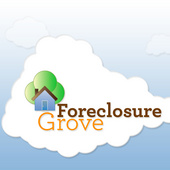
Online social media is like the fax machine: the more people use it, the more valuable it becomes. That value comes from the potential of the medium to access the person you want: as Twitter grows, not only are more people using volume-wise, more people in my personal network are using it, so its relative use value to me increases at the same time.
It’s hard to remember a time not everyone had email but now it’s the default way to contact someone, though that is probably being overtaken by texting for friends and family. The exact way we connect through social media is still in flux - so what will social media look like in 2010? What sort of changing emphases might we see in the next year? Here is a roundup of some predictions about social media:
Social media will link with GPS more closely.
Place still matters, and the rise of GPS systems in phones and computer apps makes the possibility to connect with people online and then transition to an in-person encounter easier, and more likely. Pete Cashmore from Mashable recently reported in his CNN column, that "Fueled by the ubiquity of GPS in modern smartphones, location-sharing services like Foursquare.com, Gowalla, Brightkite and Google Latitude are suddenly in vogue...with Foursquare (potentially becoming) the breakout services of the year ... provided they're not crushed by the addition of location-based features to Twitter and Facebook" (from http://inventorspot.com/articles/social_media_predictions_2010_35277).
Augmented reality will become the new buzzword - but not mainstream.
Augmented reality (the overlay of information onto the visual 3D world around us) will grow for use in mobile apps and new hardware, but it will probably take another year or two to get huge. That said, think of buying real estate when you can just drive around, look at a house, and see the price pop-up from behind the roof - and then keep driving. If you aren’t super-familiar with augmented reality, here’s an example:
http://www.youtube.com/watch?v=b64_16K2e08&feature=player_embedded
Long-term case studies will be more in demand.
This is one of our own predictions (and hopes), that businesses will push harder for evidence-based payoff for utilizing social media. James Cooper, Saatchi's digital creative director, notes in a recent Harvard Business blog article that "If something's got 20 million hits on YouTube, that's a good thing," he says. "But what if half the comments are negative? I don't think anyone's got a long-term case study yet [to understand social media better]" . It’s easy to find lists of pop case studies (meaning not well-studied or critically examined, mostly just press releases and descriptions), like the list at Now Is Gone and another through The Parallax View, but strong academic and business studies that show effectiveness in dollars-and-cents terms will be needed for people to continue investing in social media.
eReader integration into social media
The eReader market is growing rapidly through the Kindle, Nook, and other eReaders, as well as eReader applications for mobile phones. While early social media was limited to reading-related apps, eReaders may soon be just another mobile electronic device ripe for value-adding social media applications. It’s the apps that make hardware valuable now, according to Sarah Rotman Epps and James McQuivey of Forrester Research: "As anyone with an iPhone knows, apps are where the magic happens: They make the device infinitely more useful.”
More filter and exclusivity
Having so many people on social media creates a lot of “noise” in the sense of empty posts, spam, and just general information overload. There is a growing market for savvy filters and whole new networking sites with more exclusivity - think gated communities online. The Harvard Business blog predicts social media might being “to look less social” and notes “Perhaps it's not actually less social, but it might seem that way as we all come to terms with getting value out of our networks — while filtering out the clutter.”

Comments(0)